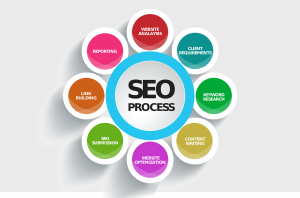Have you ever heard of Sir Tim Berners-Lee? If not, he is the English computer scientist best known as the inventor of the World Wide Web. In fact, in 1991 Sir Tim Berners-Lee, with a team of engineers, launched the world’s very first website which is still live today.Indeed, we’ve come a very long way since then.Fast forward to 2015, there are now over 1 billion websites according to Internet Live Stats and we live in a world that is reliant on modern technologies such as the internet. So what does this mean for you? Well, if you or your business has a website then you have some fierce competition being just one of the billion-plus websites currently on the internet. Having a website showcasing your service or product is great, it shows that you want the public to be aware of what you are offering. What this means essentially, is in order for your website to be relevant and successful, web traffic (internet users) needs to successfully flow towards your website. One of the best ways to increase traffic towards your website is through Search Engine Optimisation (SEO). Most of us, and I am tempted to say all of us, use search engines to find what we’re looking for on the internet, with the most popular search engine being Google. Most users, when searching on Google are likely to click on the one of the first four ranking results that show up on Google’s first page. I know I do, and if you do too then you can be sure that others are also likely to do the same. In fact, statistics have shown that over 70% of clicks related to a search term or phrase are allocated to the first four search results. Perhaps of more interest is that 92 percent of all traffic for an average search garnered from page 1 results, with 33% going to the first place on page 1.
This is where SEO makes the difference. In order to get web traffic flowing towards your website you need to rank high up on search engines when people are searching for products or services that are relevant to them. So, let’s get down to the real business. How do you get the most out of SEO? Or, how do you get a higher page rank than your competitor?
Here are three tips you can use to improve your SEO:
1 – CONTENT CONTENT CONTENT
Creating great and unique content allows Google to know that you’re website is out there. If your website is thin on content, Google will pay very little attention to it.
The content displayed on your website needs to be relevant to the products or services you are offering, must be unique (not copied from elsewhere on the web) and should also contain relevant keywords.
If you are selling surfboards in Durban, for example, the keywords on your website might be words like “Durban”, “Surfboard” “Durban Surf Spots” etc…
Google Keyword Planner allows you to test and see where your keyword focus should be. By using this tool you are able to create content using these words which will in turn give a higher page rank on Google.
Remember that Keywords are key… people will respond favourably to your website if what they are reading is relevant and engaging.
Helpful tip: Make sure that your content has images, infographic, links, bold headings, sub headings and anything else that makes your website more readable.
Writing small snippets of information (shorter sentences and small paragraphs, like this one) allows readers to follow and better understand what you’re talking about.
2 – BACKLINKS MATTER
Backlinks, also known as incoming links, or inbound links, are essentially links that direct back to your website via other sources/websites. If your content is great it will result in people talking about your website and sharing links that direct back to your website.
This will let Google know that your website is legitimate and trustworthy thus resulting in a higher page rank.
This can be achieved through Relational Blog Posts, Social Media, creating content that can be shared, engaging on relevant forums etc…
If you create top quality content you will have top quality websites linking to you. When Google sees this, and they will, your website will move up the rankings at a very fast rate.
3 – BE RESPONSIVE
None of the above will matter much if your website is not responsive (or mobile friendly). Make sure that all the links on your pages work, that your page loads fast enough, that every button you have works and test it yourself on your phone or tablet.
Your goal is to keep visitors on your website and nothing annoys a visitor more than a website that is not working as it should.
In summary:
SEO can be very complicated, but not if you’re well informed have a good understanding of the basics. If you can start by getting these right and continue to do your homework the rest will follow.





